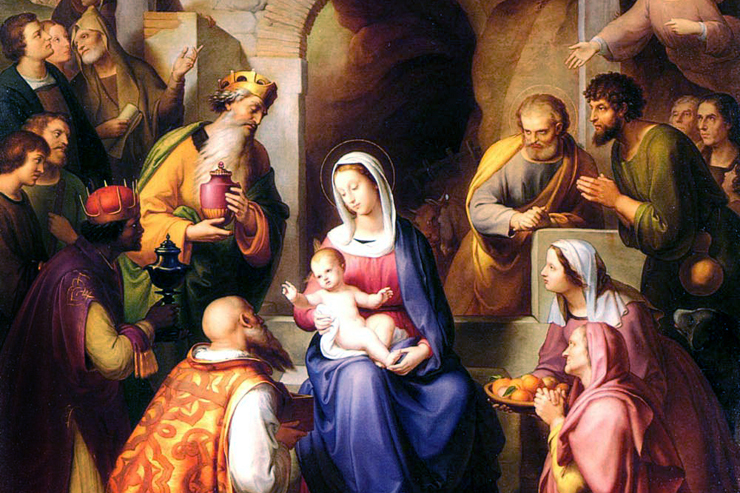Most of my musings about theology and spirituality come in the middle of ordinary tasks, and the story behind this post is nothing different. One morning over the Christmas holiday, my sister’s husband and I were emptying the dishwasher from the night before and putting all the dishes away in the cabinets. I realized that Patrick knew exactly where everything went.
The kitchen is the kitchen I grew up in, and the plates have been in the same cabinets for over 30 years. Even though I haven’t lived in that house for many years, it’s still my home. No one would be surprised that I know where the plates go. But Patrick has never even lived in the same city as this house. It’s not his house. And yet, in a real sense, it is now his home.
Likewise, my brother has been married for almost twenty years, and my sister-in-law has been part of my life since I was seven. Our house is her home. Both she and my brother-in-law are no longer guests in the Watson house. We don’t ask them if they’d like a glass of water or apologize for messes. They’re at home in the house where they once were visitors.
They remember the first time they stepped foot into that house. It was unknown. They were both probably nervous to meet my sometimes-overwhelming family for the first time. Now they are at home there, and they empty the dishwasher.
For both of them, thanks to a covenant that they entered into with a sibling of mine, their family has grown and now our home is their home.
Isn’t this kind of the way life is in the Church? Through our covenant with God that we enter into at baptism and renew at each Mass, we find ourselves at home in the Body of Christ. For those who came into the Church as adults, this is tangible on a natural level. Perhaps the first time they walked into a Catholic church, they were nervous or uncertain. Perhaps it was strange and overwhelming. Now they know the language, they know the routine, they know the family. In a sense, they know where the dishes go.
On a far deeper level, however, we’re not just talking about feeling at home in a church community. Ultimately, our home is God’s home: heaven. And thanks to the covenant relationship we entered into at baptism, we are able to live in that home. As Frank Sheed explains, the supernatural life we received at baptism is the “power to live the life of heaven.” Without sanctifying grace, we couldn’t go to heaven, “for we could not live there when we got there. Grasp clearly that the supernatural life, which we call also sanctifying grace, is not simply a passport to heaven: it is the power to live in heaven” (Sheed, Theology and Sanity).
But it’s not enough to simply be baptized and coast through the rest of life, assured of eternal salvation. It’s possible to lose that power to live in heaven, through mortal sin. We have to pray for the courage to flee even venial sins, which is possible only with the help of the Holy Spirit.
There are two ways of joining a new family: becoming at home in their home, or remaining a stranger and outsider. Sadly, there are some in-laws who never feel at home with their new family. Perhaps for some, this is due to something out of their control. But for others, they choose not to pursue or value this new relationship. They remain outside the family because they never work on being a part of the family. They never know where the dishes go.
It can be the same way with our new family after baptism. It requires perseverance and work to become comfortable in the family of God. And it’s a relationship that is well-worth working on, because if we remain a stranger to this new family of God in this life, by neglecting our prayer life and vocation as Christians, we won’t be at home in the next, either.
We have become part of a new family with a new home. Remember, “we have a building from God, a dwelling not made with hands, eternal in heaven” (2 Cor 5:1). We “desire a better homeland, a heavenly one” (Heb 11:16). Thank your heavenly Father for preparing a place for you in heaven—a place you can call home—and ask for help persevering on the journey to get there.















